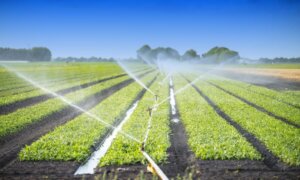Ever wondered how Southeast Asia’s hot markets can boost your business or investment portfolio? Compared to other countries in the region, Vietnam’s property ownership laws and investment regulations offer unique advantages and challenges for foreign investors. As a strategic consultant with over 20 years of experience in FDI and manufacturing across dynamic markets like Vietnam, […]
Agricultural products are a major export industry in Vietnam, contributing significantly to the country's entire export turnover. Despite the difficult condition caused by the Covid-19 pandemic, Vietnamese farmers continue to do their utmost to provide agricultural products to the global market.
Overview of agricultural product exports
General situation of agricultural product exports

According to the Ministry of Agriculture and Rural Development (MARD), agricultural, forestry, and fisheries export turnover was assessed at almost 17.9 billion USD in the first four months of the year, up 15.6 percent over the same period the previous year.
Coffee, rice, vegetables, shrimp, and wood products were among the five product groupings with export values exceeding one billion USD in the first four months of the year. Coffee, rubber, pepper, cassava and cassava products, pangasius, shrimp, wood, and wood products all had increased export values compared to the same period the previous year.
Specifically, coffee export value reached nearly 1.7 billion USD (up 59.4 percent); rubber reached about USD 869 million (up 10.9 percent); pepper about 367 million USD (up 29.6 percent). Cassava and cassava products reached USD 574 million (up 29.5 percent). Meanwhile, timber and wood products reached nearly 5.5 billion USD (up 4.5 percent). Rattan, bamboo, and sedge mats reached 339 million USD (up 22.7 percent).
Agricultural export markets
In terms of export markets, Asia accounted for 41.0 percent of the market share, followed by the Americas at 29.7 percent, Europe at 12.8 percent, Africa at 1.8 percent, and Oceania at 1.7 percent.
Vietnam has earned almost 4.9 billion USD in the US market through the export of agricultural, forestry, and fisheries goods, and this market accounts for 27.3 percent of the Vietnamese agricultural export market share. The export turnover of wood and wood products, in particular, accounted for 68.2 percent of Vietnam's agriculture, forestry, and fisheries export turnover to the US market.
China is the second-largest market for rubber-based agro-forestry-fishery products in the world, with an export value of over 3.2 billion USD (accounting for 18.1 percent of the market share). The third-largest market is Japan, and the fourth is the Korean market.
Opportunities for agricultural exports
Growth in world market demand
The worldwide market's demand for agricultural goods has grown. According to the OECD-FAO prediction, global agricultural product consumption would rise by an average of 1.5-3 percent each year between 2019 and 2028. Vietnamese agricultural goods sold to more than 180 markets worldwide have been well received, particularly in major markets such as the EU, the United States, and China... Many Vietnamese agricultural goods, such as coffee, rice, tea, and cashew nuts, are global leaders in exports.
Government’s policies
Furthermore, the government has implemented policies to encourage professional growth in agriculture, a transition from "agricultural production" to "agricultural economy," create large-scale agriculture, and sustainable agriculture are being developed on a broad scale in order to improve agricultural product quality. The Ministry of Agriculture and Rural Development (MARD) is currently developing a program targeting specific agricultural production areas, such as Quang Ninh Province and Can Tho City.
Development of science and technology

The advancement of science and technology, as well as the wave of the 4.0 technological revolution, provide several chances to assist the agriculture business in improving its competitiveness and meeting the rising demands of export markets. The most visible uses of the 4.0 technological revolution, such as digital technology (AI, Bigdata, Internet of Things IoT, Remote sensing technology...), efficiently cut costs while increasing quality and productivity. The advancement of technology 4.0 has boosted online commerce marketing efforts. According to Ministry of Industry and Trade (MIT) research, online trade promotion activities have assisted Vietnamese exporters in saving trade promotion expenditures while maintaining and creating solid connections with overseas partners all over the world.
Support of trade agreements
Vietnam has ratified 17 Free Trade Agreements so far, the most notable of which are the European Union–Vietnam Free Trade Agreement (EVFTA), Comprehensive and Progressive Agreement for Trans-Pacific Partnership (CPTPP), and Regional Comprehensive Economic Partnership (RCEP). The unifying goal of these generation FTAs is to open up new export markets, allowing Vietnamese agricultural goods to have greater access to the global market. Tariff incentives assist to lessen price competitiveness while exporting while also facing increased rivalry in the home market. In addition to tariff agreements, commitments to the business and investment environment were acknowledged. Vietnam and its FTA partners both declare the application of essential principles such as non-discrimination between local and international investors, as well as the absence of specific measures. influencing investors, etc. Furthermore, Vietnam is extending the areas in which FTA partners can invest and do business in Vietnam.
Challenges for agricultural product exports
Competition due to international economic
International economic integration fosters fierce rivalry in both domestic and international markets. FTAs also face significant competition in both export and domestic markets. Sugar cane, livestock products, raw materials for animal feed, and other commodities with minimal competitive advantages would face significant competition from imported items.
Variations in global market demand
Market demands are changing, and quality standards are becoming more stringent. Energy-saving and environmentally friendly items are becoming more popular on the market. This is also a significant impediment to the export of Vietnamese agricultural, forestry, and fishing goods. Despite the fact that the system of traceability and exploitation management has not been fully established, many new agricultural companies are being renovated to integrate with the world.
Logistics system underdevelopment
Vietnam's logistics costs remain high, accounting for 13 percent of the cost of seafood, 23 percent of the cost of furniture, 29 percent of the cost of vegetables, and 30 percent of the cost of rice. Vietnam's transportation infrastructure is outdated, and no national gateway port system has been defined. The warehousing system and cold supply chain are still restricted and ineffective. Infrastructure and logistical services for border commerce are limited, warehousing is simple, logistics services supporting cross-border import and export are basic, and Vietnamese agricultural goods have yet to gain additional value.
Variations in country export policy
Changes in nations' import policies will have a significant impact on agricultural product exports. The United States has launched many anti-dumping tax charges against Vietnamese shrimp and pangasius goods in recent years. Alternatively, the EU applies for a "yellow card" to Vietnam's seafood imports into the EU; a change in China's border trade management policy creates difficulties for exporting agricultural products in Vietnam.
Negative impacts of climate change and disease
Natural catastrophes and epidemics have long posed several difficulties and challenges to the agricultural business, influencing the production and trading of agroforestry-fishery goods. The recent emergence of acute respiratory illnesses caused by a novel strain of Covid-19 has hampered developments and significantly impacted all socioeconomic activities and the commercial situation in agricultural export in Vietnam and global markets
Viettonkin is glad to say that we have extensive market and legal experience in exporting Vietnamese agricultural goods. Foreign investors and domestic exporters who want to import and export goods or services to other nations should contact Viettonkin right once to increase your chances of success. We are dedicated to providing the highest quality to our consumers!












